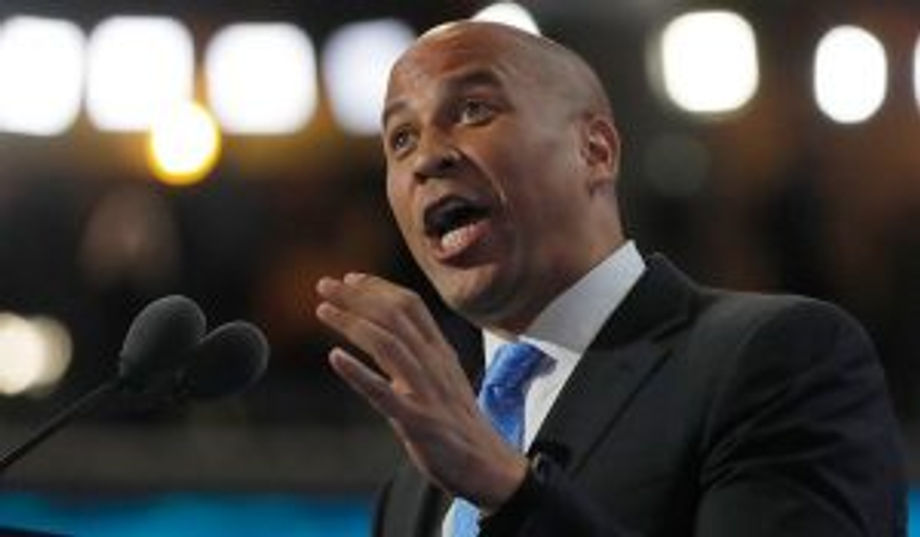Against a nominee for a not-very-powerful Cabinet job, Democrats “went to the barricades,” writes Ross Douthat in a New York Times. Old-fashioned, pre-Trump politics explains the “holy war” against Betsy DeVos, he concludes.

Once an ally of Betsy DeVos, Sen. Cory Booker opposed her nomination to head the Education Department.
“The bulk of DeVos’s school-choice work places her only somewhat to the right of the Obama administration’s pro-charter-school positioning, close to centrist Democrats like Senator Cory Booker,” Douthat writes.
“In DeVos, we have an education secretary who perhaps errs a little too much on the side of choice-as-panacea, overseeing (with limited powers) an American education bureaucracy that pretty obviously errs the other way.”
Three things explain why Democrats fought so hard to defeat her, he argues.
First, when interest groups talk, politicians listen — and the teachers’ unions are simply more powerful in Democratic circles, with more money and leverage and clout, than most of the groups leading the charge against other Trump policies or nominees. . . . Second, even in the age of surging blue-collar populism, upper-middle-class suburbanites haven’t lost their influence, and they generally like their public schools and regard school choice as a threat rather than a promise. Charters and vouchers are most appealing to . . . low-income families locked into failing schools and religious conservatives and bohemians with ideological doubts about the content of the public-school curriculum. That’s a motley, divided constituency, whereas well-off suburbanites are easier to activate and rally.
Finally, DeVos’ Christian faith freaked out liberals, writes Douthat.
. . . the fervor and pitch of the opposition basically reflected the present Democratic Party at its worst: unstinting in defense of bureaucracy and its employees, more excited about causes dear to the upper middle class than the interests of the poor, and always girding for the battle with the Real Enemy, religious conservatives, no matter what the moment actually demands.
“Union power and money” explains why Democrats went “all out to defeat” only one of Trump’s nominees, Betsy DeVos, editorializes the Wall Street Journal.
As the mayor of Newark, Cory Booker strongly supported school choice, serving with DeVos on the board of a school choice group. In May 2016, Sen. Booker “delivered an impassioned speech at the AFC’s annual policy summit,” defending school choice as the pathway to “equal opportunity” and “liberation,” reports the Journal.

Elizabeth Warren supported school vouchers in a 2003 book.
During the all-night talkathon, Sen. Booker spoke against DeVos’ nomination. Reportedly, he’s considering a run for the presidency in 2020.
Sen. Elizabeth Warren was a fan of school vouchers, before she got into politics, points out the New York Post. In her 2003 book, The Two-Income Trap, Warren wrote: “With fully funded vouchers, parents of all income levels could send their children — and the accompanying financial support — to the schools of their choice.”
The issue is parental choice, she argued. “Vouchers would relieve parents from the terrible choice of leaving their kids in lousy schools or bankrupting themselves.”
Commentaires